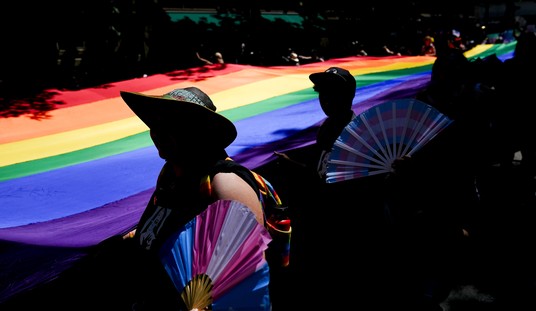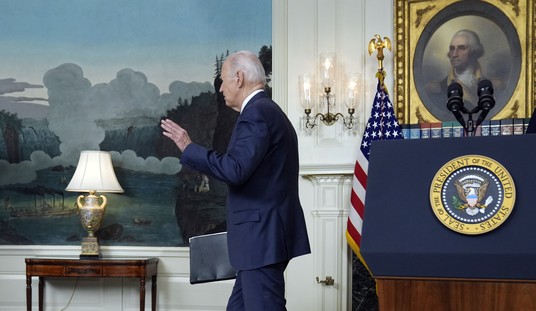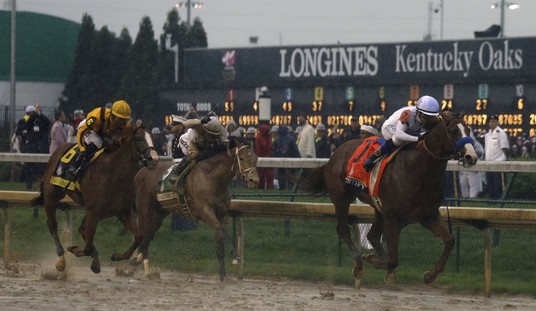The world of young adult fiction is a minefield of political correctness. A brief perusal of social media will tell you that just about everything written for this audience is highly problematic and we should all be offended for one reason or another.
To combat this, publishers hire people like Kosoko Jackson, a “sensitivity reader” who could help them navigate this minefield of identity politics and create a book that would be inoffensive to all readers. This proved to be such an insurmountable task that Jackson himself couldn’t achieve it, and has pulled his own book from publication shortly before release.
Jackson’s first book, Slate reports, was due to be released later this month, and it was set to be a hit. The Book, A Place for Wolves, centered around two young gay American boys (like these characters, Jackson is gay and black, which apparently matters), in the late 1990s during the Kosovo War. Slate reports that the book “looked poised to succeed: It received several early starred reviews, which influence library purchases and bookstore placement, and had been named a “Kids’ Indie Next” pick, suggesting an early interest from independent booksellers.”
So, what happened? The online mobs that Jackson usually led came after him. Slate says it started with an online review.
Here are a few choice excerpts (language warning):
I have to be absolutely fucking honest here, everybody. I’ve never been so disgusted in my life.
…
Now, what’s the relevance here, you may ask? Well, a Place for Wolves is set during the Kosovan Genocide. It centers two, non-Muslim Americans, and largely focuses on their suffering, and their fear, whilst being caught in the chaos. There’s something so gross to me about centering our pain and experience in a real-life tragedy that really wasn’t about us. I would like to see this story written by someone who deeply understands it, who feels the pain of their friends and family, who actually was displaced, or threatened. But instead we get the story of privileged Westerners as they viewed the conflict. Which could have been handled well. But oh, it was not. We weren’t watching the suffering inflicted on the Albanian’s viewed through the MC’s eyes. We were watching the MC’s suffering. We were meant to care about the MCs, and screw the genocide victims, really. Which would be fine if this were a fantasy novel, but for fuck’s sake, this novel is set during a REAL LIFE GENOCIDE.
…
I don’t know how to get it through to you just how horrifying and harmful this is. To see people calling this a ‘cute gay love story’. I just. Okay. If people were discussing a ‘cute gay love story’ about ‘boys cuddling’ set in the Holocaust while people were brutally murdered around them, would THAT make you cringe? Because this is similar, but this only happened 20 years ago.
Oh, and lets take that a step further. This book about American ‘boys cuddling’ is set during a genocide, where the moral of the story is “Hey, nothing is black and white, and a lot of those victims did awful things too, and maybe they sometimes had it coming”.
…
Are you able to confidently justify supporting this book despite all of the above, despite the harm it can and will do to real people, real people who’s family and friends were slaughtered in the 90s?
Yikes.
Others piled on, changing and apologizing for previously positive reviews.
Jackson asked the the book be pulled from publication.
https://twitter.com/KosokoJackson/status/1101180233913376773
His website is now in “maintenance mode.”

This comes only weeks after Amélie Wen Zhao cancelled the publication of her own YA novel, Blood Heir, after complaints of racism. The fantasy book has themes of oppression and slavery, which people took to belong to the “black community” and it snowballed from there.
March just got started, and two authors, two people of color (since that matters to the mob in question) have had to pull their own books because they’re being attacked by these online mobs. In the case of Jackson, the very mobs he used to lead (in fact, Jackson was one of Zhao’s attackers.)
Jesse Singal wrote about this phenomenon in Tablet.
But while some of the social justice concerns percolating within YA fiction are legitimate, the explosive manner in which they’re expressed within YA Twitter is another story. Posing as urgent interventions to prevent the circulation of harmful tropes, the pile-ons are often based on selective excerpts pulled out of context from the advance copies of books most in the community haven’t read yet. Often, they feature critics operating on the basis of idiosyncratic ideas about the very purpose and nature of fiction itself, elevating tendentious interpretations of the limited snippets available to pass judgement on books before they have been released…
Further heightening the drama, these pile-ons are often accompanied by claims that those who have been selected for dragging or excommunication have not only sinned against social justice, but pose a safety threat to others in the community…Rosenfield, for example, asked the author of the anti-The-Black-Witch post for an interview, was politely turned down, and then watched as she “announced on Twitter that our interaction had ‘scared’ her, leading to backlash from community members who insisted that the as-yet-unwritten story would endanger her life.
We now ruin careers based on unsubstantiated rumors of thoughtcrime based on excerpts. When did we start seeking out offense? When did we decide that hurt feelings were a physical threat?
Jackson learned the hard way that the mob you lead will eventually turn on you.













Join the conversation as a VIP Member